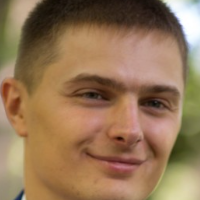International Journal of Modern Education and Computer Science (IJMECS)
IJMECS Vol. 7, No. 2, 8 Feb. 2015
Cover page and Table of Contents: PDF (size: 570KB)
An Evolving Neuro-Fuzzy System with Online Learning/Self-learning
Full Text (PDF, 570KB), PP.1-7
Views: 0 Downloads: 0
Author(s)
Index Terms
Computational intelligence, evolving neuro-fuzzy system, online learning/ self-learning, membership function, prediction/forecasting, machine learning
Abstract
A new neuro-fuzzy system’s architecture and a learning method that adjusts its weights as well as automatically determines a number of neurons, centers’ location of membership functions and the receptive field’s parameters in an online mode with high processing speed is proposed in this paper. The basic idea of this approach is to tune both synaptic weights and membership functions with the help of the supervised learning and self-learning paradigms. The approach to solving the problem has to do with evolving online neuro-fuzzy systems that can process data under uncertainty conditions. The results proves the effectiveness of the developed architecture and the learning procedure.
Cite This Paper
Yevgeniy V. Bodyanskiy, Oleksii K. Tyshchenko, Anastasiia O. Deineko, "An Evolving Neuro-Fuzzy System with Online Learning/Self-learning", International Journal of Modern Education and Computer Science (IJMECS), vol.7, no.2, pp.1-7, 2015. DOI: 10.5815/ijmecs.2015.02.01
Reference
[1]A. Cichocki, R. Unbehauen, Neural Networks for Optimization and Signal Processing. Stuttgart: Teubner, 1993.
[2]S. Haykin, Neural Networks: A Comprehensive Foundation. Upper Saddle River, New Jersey: Prentice Hall, 1999.
[3]R.J. Schalkoff, Artificial Neural Networks, New York: The McGraw-Hill Comp., 1997.
[4]D. Graupe, Principles of Artificial Neural Networks (Advanced Series in Circuits and Systems). Singapore: World Scientific Publishing Co. Pte. Ltd., 2007.
[5]K. Suzuki, Artificial Neural Networks: Architectures and Applications. NY: InTech, 2013.
[6]G. Hanrahan, Artificial Neural Networks in Biological and Environmental Analysis. NW: CRC Press, 2011.
[7]K.-L. Du and M.N.S. Swamy, Neural Networks and Statistical Learning. London: Springer-Verlag, 2014.
[8]S.F. Lilhare and N.G. Bawane, “Artificial Neural Network Based Control Strategies for Paddy Drying Process”, in Int. J. Information Technology and Computer Science, vol. 6, no. 11, 2014, pp.28-35, doi: 10.5815/ijitcs.2014.11.04.
[9]M. Abo-Zahhad, S.M. Ahmed, and S.A. Abd-Elrahman, “Integrated Model of DNA Sequence Numerical Representation and Artificial Neural Network for Human Donor and Acceptor Sites Prediction”, in Int. J. Information Technology and Computer Science, vol. 6, no. 8, 2014, pp.51-57, doi: 10.5815/ijitcs.2014.08.07.
[10]M.L. Pai, K.V. Pramod, and A.N. Balchand, “Long Range Forecast on South West Monsoon Rainfall using Artificial Neural Networks based on Clustering Approach”, in Int. J. Information Technology and Computer Science, vol. 6, no. 7, 2014, pp.1-8, doi: 10.5815/ijitcs.2014.07.01.
[11]L. Rutkowski, Computational Intelligence. Methods and Tehniques. Berlin-Heidelberg: Springer-Verlag, 2008.
[12]J.-S. Jang, C.-T. Sun, and E. Mizutani, Neuro-Fuzzy and Soft Computing: A Computational Approach to Learning and Maching Intelligence. Upper Saddle River, N.J.: Prentice Hall, 1997.
[13]C.L. Mumford and L.C. Jain, Computational Intelligence. Berlin: Springer-Verlag, 2009.
[14]R. Kruse, C. Borgelt, F. Klawonn, C. Moewes, M. Steinbrecher, and P. Held, Computational Intelligence. A Methodological Introduction. Berlin: Springer-Verlag, 2013.
[15]L.-X. Wang and J.M. Mendel, “Fuzzy basis functions, universal approximation and orthogonal least squares learning”, in IEEE Trans. on Neural Networks, vol. 3, 1993, pp. 807-814.
[16]K.J. Cios and W. Pedrycz, Neuro-fuzzy algorithms. Oxford: IOP Publishing Ltd and Oxford University Press, 1997.
[17]J. Friedman, T. Hastie, and R. Tibshirani, The Elements of Statistical Learning. Data Mining, Inference and Prediction. Berlin: Springer, 2003.
[18]S. Osowski, Sieci neuronowe do przetwarzania informacji. Warszawa: Oficijna Wydawnicza Politechniki Warszawskiej, 2006.
[19]N. Kasabov, Evolving Connectionist Systems. London: Springer-Verlag, 2003.
[20]E. Lughofer, Evolving Fuzzy Systems – Methodologies, Advanced Concepts and Applications. Berlin-Heidelberg: Springer-Verlag, 2011.
[21]Ye. Bodyanskiy, P. Grimm and N. Teslenko, “Evolving cascaded neural network based on multidimensional Epanechnikov’s kernels and its learning algorithm,” in Int. J. Information Technologies and Knowledge, vol. 5, no. 1, 2011, pp. 25-30.
[22]P. Angelov, D. Filev, and N. Kasabov, Evolving Intelligent Systems: Methodology and Applications. New York: John Wiley and Sons, 2010.
[23]N. Kasabov, Evolving Connectionist Systems: The Knowledge Engineering Approach, London: Springer-Verlag, 2007.
[24]N.K. Kasabov, “Evolving fuzzy neural networks for supervised/unsupervised online knowledge-based learning”, in IEEE Transactions on Systems, Man and Cybernetics, Part B: Cybernetics, no. 31(6), 2001, pp. 902-918.
[25]N.K. Kasabov and Q. Song, “DENFIS: Dynamic evolving neural-fuzzy inference system and its application for time-series prediction”, in IEEE Transactions on Fuzzy Systems, no. 10(2), 2002, pp. 144-154.
[26]E. Lughofer, “FLEXFIS: A robust incremental learning approach for evolving TS fuzzy models”, in IEEE Transactions on Fuzzy Systems, no. 16(6), 2008, pp. 1393-1410.
[27]Ye.V. Bodyanskiy and A.A. Deineko, “Adaptive learning of the RBFN architecture and parameters”, in System Technologies, vol.4, no. 87, 2013, pp. 166-173. (in Russian).
[28]Ye.V. Bodyanskiy and A.A. Deineko, ―The evolving radial-basis neural network and its learning with the help of the Kohonen map‖, in Proc. Sci. Conf. «Information Technologies in Metallurgy and Mechanical Engineering», 2013, pp. 75-77. (in Russian).[29]J.A. Torres, S. Martinez, F.J. Martinez, and M. Peralta, “The problem of organizing and partition large data sets in learning algorithms for SOM-RBF mixed structure”, in Proc. 5th Int. Joint Conf. on Computational Intelligence, 2013, pp. 497-501.
[30]T. Kohonen, Self-Organizing Maps. Berlin: Springer-Verlag, 1995.
[31]O. Nelles, Nonlinear System Identification. Berlin: Springer, 2001.
[32]Ye. Bodyanskiy, V. Kolodyazhniy, and A. Stephan, “An adaptive learning algorithm for a neuro-fuzzy network”, in Computational Intelligence. Theory and Applications, B. Reusch, Ed. Berlin – Heidelberg – New York: Springer, 2001, pp. 68-75.
[33]P. Otto, Ye. Bodyanskiy, and V. Kolodyazhniy, “A new learning algorithm for a forecasting neuro-fuzzy network”, in Integrated Computer-Aided Engeneering, vol. 10, no. 4, 2003, pp. 399-409.
[34]Ye.V. Bodyanskiy and О.G. Rudenko, Artificial Neural Networks: Architectures, Learning, Applications. Kharkiv: ТЕLЕТЕH, 2004. (in Russian)
[35]M.C. Mackey and L. Glass, “Oscillation and chaos in physiological control systems”, in Science, no. 197, 1977, pp. 238-289.

